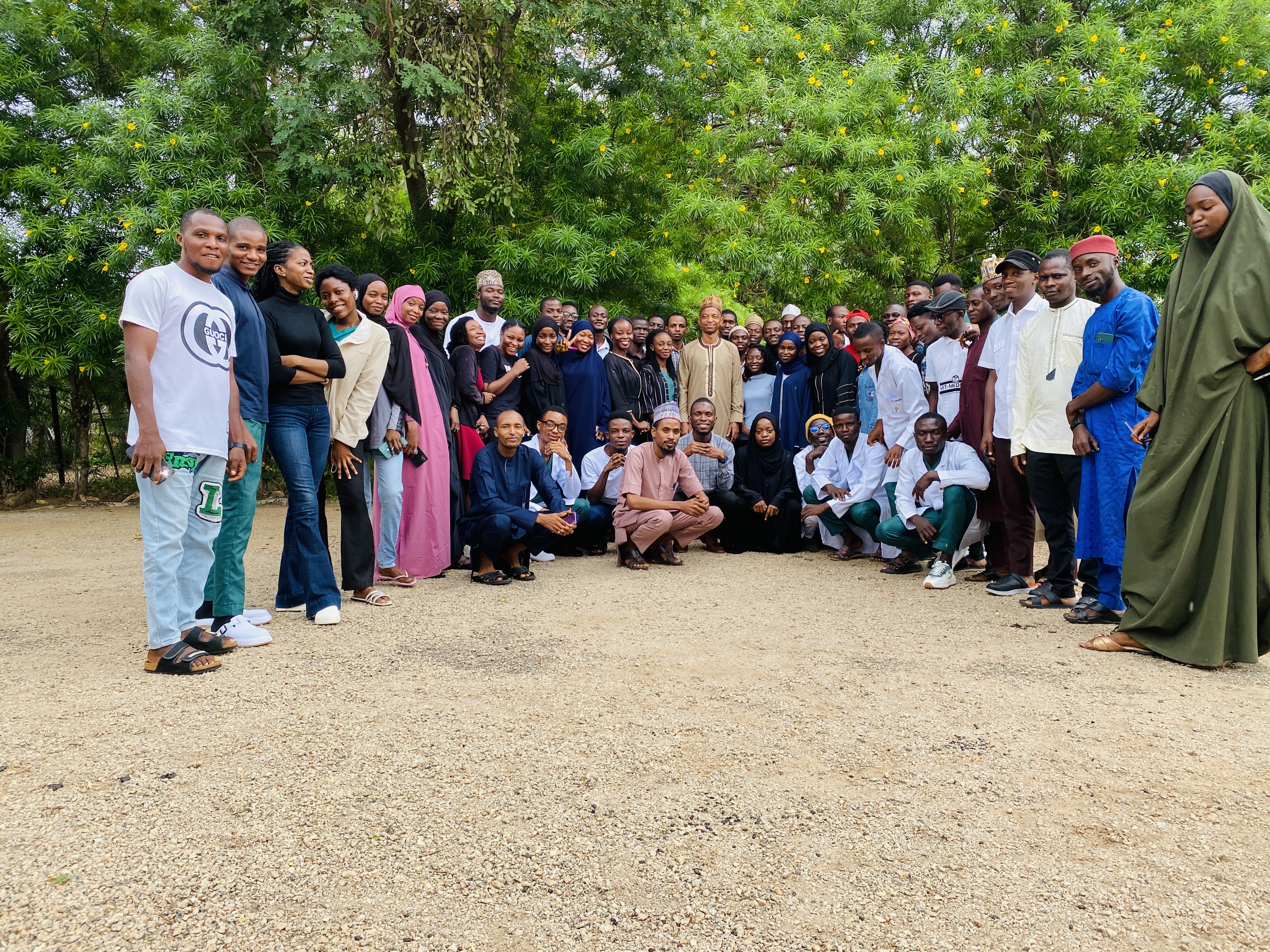MORNING-AFTER PILLS
MORNING-AFTER PILLS
Hey Guys.. I am here again but today with a somewhat sad News. I heard the News but it made me do some research or Findings.
So, A friend of Mine called me today to tell me about a Friend of Ours (Let's call her Dara).
So, we Heard Dara is pregnant and even though it is supposed to be a Goodnews but in this part of the world we are in, our culture prohibits a female to get pregnant out of wedlock... At least, the Father of the unborn child should be known.
Well, in Dara's case, neither she nor anyone know the Father of Her Unborn child. After so many interrogation, she confessed that she was actually sexually assaulted and probably that resulted into pregnancy.
You will agree with me that no one deserves to go through that kind of pain she went through and is probably going through at the moment. Then, I began to wonder if there was a way it could have been prevented - at least the pregnancy.
This led me to the concept of MORNING-AFTER PILLS which are also known as Emergency Contraception Pills. They were called Morning-After Pills to convey the urgency of the situation.
Emergency Contraception Pills (ECPs), also known as Morning-After Pills, are a type of contraceptive that can be used to prevent pregnancy after unprotected sex or if a contraceptive method fails. They are designed to be used in emergency situations and are not intended as a regular form of contraception.
ECPs work by:
- Delaying ovulation
- Preventing fertilization
- Preventing implantation of a fertilized egg.
There are different types of ECPs, including:
- Levonorgestrel (Plan B, Next Choice): Available over-the-counter (OTC) for women of all ages.
- Ulipristal acetate (Ella): Available by prescription only.
- Combined hormonal methods (e.g., regular birth control pills): Can be used as ECPs, but require a prescription.
ECPs are effective up to 5 days (120 hours) after unprotected sex, but the sooner they are taken, the more effective they are.
It's important to note that ECPs:
- Do not terminate an existing pregnancy
- Do not protect against STIs
- Are not a substitute for regular contraception
- May have side effects like nausea, fatigue, and changes in menstrual bleeding
When should They Be Taken?
Emergency contraception pills (ECPs) should be taken as soon as possible after unprotected sex, ideally within 72 hours (3 days) but no later than 120 hours (5 days).
Some common situations in which ECPs may be used include:
- No contraceptive was used during sex
- Concern of possible contraceptive failure
- Sexual assault when no effective contraceptive method was used. Especially in situations like this.
And this is why they should be taken early -
ECPs should be taken as soon as possible after unprotected sex because they work best when taken promptly. The effectiveness of ECPs decreases with time, and the risk of pregnancy increases. Here's a breakdown of the effectiveness of ECPs based on when they are taken:
- Taken within 24 hours: 95% effective
- Taken within 48 hours: 85% effective
- Taken within 72 hours: 75% effective
- Taken within 120 hours: 58% effective
Taking ECPs sooner rather than later also reduces the risk of pregnancy complications and ensures that any potential pregnancy is terminated before it progresses.
Remember, ECPs are not a substitute for regular contraception and should only be used in emergency situations.
How exactly do they work?
The mechanism of action of Emergency Contraception Pills (ECPs) varies depending on the type:
1. Levonorgestrel (LNG) ECPs (Plan B, Next Choice):
- Delay ovulation, preventing the release of an egg
- Thickens cervical mucus, making it harder for sperm to reach the egg
- Alterations in the uterine lining, making it less receptive to implantation
2. Ulipristal acetate (UPA) ECPs (Ella):
- Delays ovulation and follicular development
- May also affect sperm function and uterine receptivity
3. Combined hormonal ECPs (using regular birth control pills):
- Prevent ovulation and fertilization
- Thicken cervical mucus and alter the uterine lining
Please note that;
- Terminate an existing pregnancy
- Affect an existing pregnancy's development
- Harm a developing embryo
Now guys, back to our story..
I feel Dara should have opened up to people she could trust and probably a Doctor to prevent this tragedy that has befallen her.
At the moment, I do not know what could be done but I wish her Divine strength to wriggle through this hard time. Well, before we get to the promised land, I shall be waiting for when I will be able to pass her a glass of water at least, to thank God for the gift of Grace for this Race.
While making my findings, I consulted some texts and the references are below.. in case you want to learn more.
- World Health Organization. (2024). Emergency contraception.
- Gemzell-Danielsson, K., Berger, C., & Lalitkumar, P. G. (2014). Mechanisms of action of oral emergency contraception. Gynecological Endocrinology, 30(10), 685-687. doi: 10.3109/09513590.2014.950648
- American College of Obstetricians and Gynecologists. (2022). Emergency Contraception.
Images were taken in class today with a revered Professor of Thereogenology and Production who came on Sabbatical to my Faculty.
Hey Dear Reader, I hope you learnt a thing or two... Do well to like, share and comment.
Gracias.
Hey Guys.. I am here again but today with a somewhat sad News. I heard the News but it made me do some research or Findings.
So, A friend of Mine called me today to tell me about a Friend of Ours (Let's call her Dara).
So, we Heard Dara is pregnant and even though it is supposed to be a Goodnews but in this part of the world we are in, our culture prohibits a female to get pregnant out of wedlock... At least, the Father of the unborn child should be known.
Well, in Dara's case, neither she nor anyone know the Father of Her Unborn child. After so many interrogation, she confessed that she was actually sexually assaulted and probably that resulted into pregnancy.
You will agree with me that no one deserves to go through that kind of pain she went through and is probably going through at the moment. Then, I began to wonder if there was a way it could have been prevented - at least the pregnancy.
This led me to the concept of MORNING-AFTER PILLS which are also known as Emergency Contraception Pills. They were called Morning-After Pills to convey the urgency of the situation.
Emergency Contraception Pills (ECPs), also known as Morning-After Pills, are a type of contraceptive that can be used to prevent pregnancy after unprotected sex or if a contraceptive method fails. They are designed to be used in emergency situations and are not intended as a regular form of contraception.
ECPs work by:
- Delaying ovulation
- Preventing fertilization
- Preventing implantation of a fertilized egg.
There are different types of ECPs, including:
- Levonorgestrel (Plan B, Next Choice): Available over-the-counter (OTC) for women of all ages.
- Ulipristal acetate (Ella): Available by prescription only.
- Combined hormonal methods (e.g., regular birth control pills): Can be used as ECPs, but require a prescription.
ECPs are effective up to 5 days (120 hours) after unprotected sex, but the sooner they are taken, the more effective they are.
It's important to note that ECPs:
- Do not terminate an existing pregnancy
- Do not protect against STIs
- Are not a substitute for regular contraception
- May have side effects like nausea, fatigue, and changes in menstrual bleeding
When should They Be Taken?
Emergency contraception pills (ECPs) should be taken as soon as possible after unprotected sex, ideally within 72 hours (3 days) but no later than 120 hours (5 days).
Some common situations in which ECPs may be used include:
- No contraceptive was used during sex
- Concern of possible contraceptive failure
- Sexual assault when no effective contraceptive method was used. Especially in situations like this.
And this is why they should be taken early -
ECPs should be taken as soon as possible after unprotected sex because they work best when taken promptly. The effectiveness of ECPs decreases with time, and the risk of pregnancy increases. Here's a breakdown of the effectiveness of ECPs based on when they are taken:
- Taken within 24 hours: 95% effective
- Taken within 48 hours: 85% effective
- Taken within 72 hours: 75% effective
- Taken within 120 hours: 58% effective
Taking ECPs sooner rather than later also reduces the risk of pregnancy complications and ensures that any potential pregnancy is terminated before it progresses.
Remember, ECPs are not a substitute for regular contraception and should only be used in emergency situations.
How exactly do they work?
The mechanism of action of Emergency Contraception Pills (ECPs) varies depending on the type:
1. Levonorgestrel (LNG) ECPs (Plan B, Next Choice):
- Delay ovulation, preventing the release of an egg
- Thickens cervical mucus, making it harder for sperm to reach the egg
- Alterations in the uterine lining, making it less receptive to implantation
2. Ulipristal acetate (UPA) ECPs (Ella):
- Delays ovulation and follicular development
- May also affect sperm function and uterine receptivity
3. Combined hormonal ECPs (using regular birth control pills):
- Prevent ovulation and fertilization
- Thicken cervical mucus and alter the uterine lining
Please note that;
- Terminate an existing pregnancy
- Affect an existing pregnancy's development
- Harm a developing embryo
Now guys, back to our story..
I feel Dara should have opened up to people she could trust and probably a Doctor to prevent this tragedy that has befallen her.
At the moment, I do not know what could be done but I wish her Divine strength to wriggle through this hard time. Well, before we get to the promised land, I shall be waiting for when I will be able to pass her a glass of water at least, to thank God for the gift of Grace for this Race.
While making my findings, I consulted some texts and the references are below.. in case you want to learn more.
- World Health Organization. (2024). Emergency contraception.
- Gemzell-Danielsson, K., Berger, C., & Lalitkumar, P. G. (2014). Mechanisms of action of oral emergency contraception. Gynecological Endocrinology, 30(10), 685-687. doi: 10.3109/09513590.2014.950648
- American College of Obstetricians and Gynecologists. (2022). Emergency Contraception.
Images were taken in class today with a revered Professor of Thereogenology and Production who came on Sabbatical to my Faculty.
Hey Dear Reader, I hope you learnt a thing or two... Do well to like, share and comment.
Gracias.




